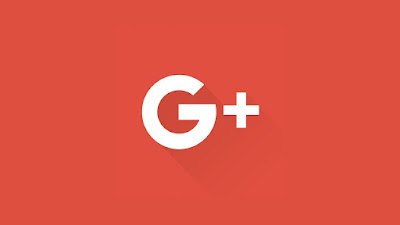I’ve always liked Google+. A friend of mine managed to get into the launch “beta” and gave me a code to join. The UI was clean, the concept of Circles for different content meant multiple focused timelines, and most of all it was a pretty booming place to be.
A lot of people are going to put different reasons why Google+ failed. It is true Facebook took most of the best features, like Circles. It is true that Google launched with no real plan. And to a certain extent, it is true that Google+ was a solution in search of a problem.
Google did their best to try and jam Google+ in places to artificially make it indispensable. They implemented a “real name” policy that they later ignored. It was the “one sign-in” for all their services. To target the younger demographics, they made it a requirement to have a Google+ account for YouTube, which borked the comment system for a long time. The mission of Google+ changed here too. It was the place to post and then cross-post to other social media. Then Photos, the bright spot of the service (still is), was spun off to its own thing. Then YouTube integration was decoupled.
They also never dealt with spammers and bots. It’s the worst. Even on official Google pages and posts. Look at when the post about feature additions, and you’ll see spam for sex and free movies. At that point, you can’t respect them for not cleaning up the trash that was right in front of them.
Here’s a rant from Steve Yegge, former Google employee, about why Google can’t understand what building a platform means.
All these points are correct. Google+ had issues that an institution like Google never knew how to correct, which meant the individuals could never actually fix anything. It wasn’t until a year or so ago that Google opened the API for apps like Buffer and Hootsuite to cross-post on. Originally, Google allowed “pages”, but by the time people built up a following, they didn’t want to shift everyone over so they can make their life easier. By the time they fixed this, it was too little that was far too late.
But even in a rough form, it had good points. A nice look. Good search on posts and users. Communities. Collections. The perfect way to portray posts, or images, or just share links. And I mean this on desktop and on mobile.
Who can forget, no ads.
Still, the loss of Google+ is another sign we live in the monopoly of Facebook, which owns the most popular social media platforms. Facebook cleaved individuals and small businesses when they changed the algorithm to extort money from them. Facebook determines what you see from friends and family, instead of, you know, letting you decide what you want to see. I’m not going to mention the social experimenting they do on people, or the fact they were weaponized by foreign agents. This is not a healthy industry, and it’s not getting any better.
I blogged about taking back digital real estate, and hopefully the demise of a platform held by one of the most powerful companies in the world is a wake up call. Facebook will use users. Twitter will ignore users. And everyone else is too small to do anything else.
Strangely enough, email is still around. WordPress now powers a third of all sites on the Internet. Newspapers are seeing an increase. Physical book sales are rebounding.
Last point, from the places I frequent, the demise of Google Plus has been little to nil. Some places don’t even recognize Google+ anymore. Others gave a passing mention with a low comment/post count in tow. No one cares anymore.
But silver linings, because they always exist. Like the Google Photos example mentioned before, Google is good about taking what works and expanding on it. Google+ will be used for enterprise use. This seems to mean turning it into a Slack competitor, so something about the core architecture will remain.
My recommendation is the same from an earlier post, have all your social media lead back to the home you own (your domain). Personally, I use Buffer to post to my Facebook page, Twitter account, and Google+ account. This helps me especially with Twitter. I still receive notifications, but the day-to-day mess that is Twitter is draining on every level. Facebook barely lets me see what my friends are up to in a chronological, and let’s face it, logical or intuitive level.
It’s all a mess.
What I loved about Google+ was I could switch to friends, to art, to news, all on one account, with very little funny business. The times are over. The Internet is getting smaller, not bigger. I’ll miss it. It has the features and control we all want from its competitors.
I can always be found here. Social media is for readers to reach out for me wherever is reasonable. If you want to talk about Tyyr, or what Alana and Karlyn are up to, or whatever other books release. These things are here for you. There’s always an old-fashioned email listed as well.
